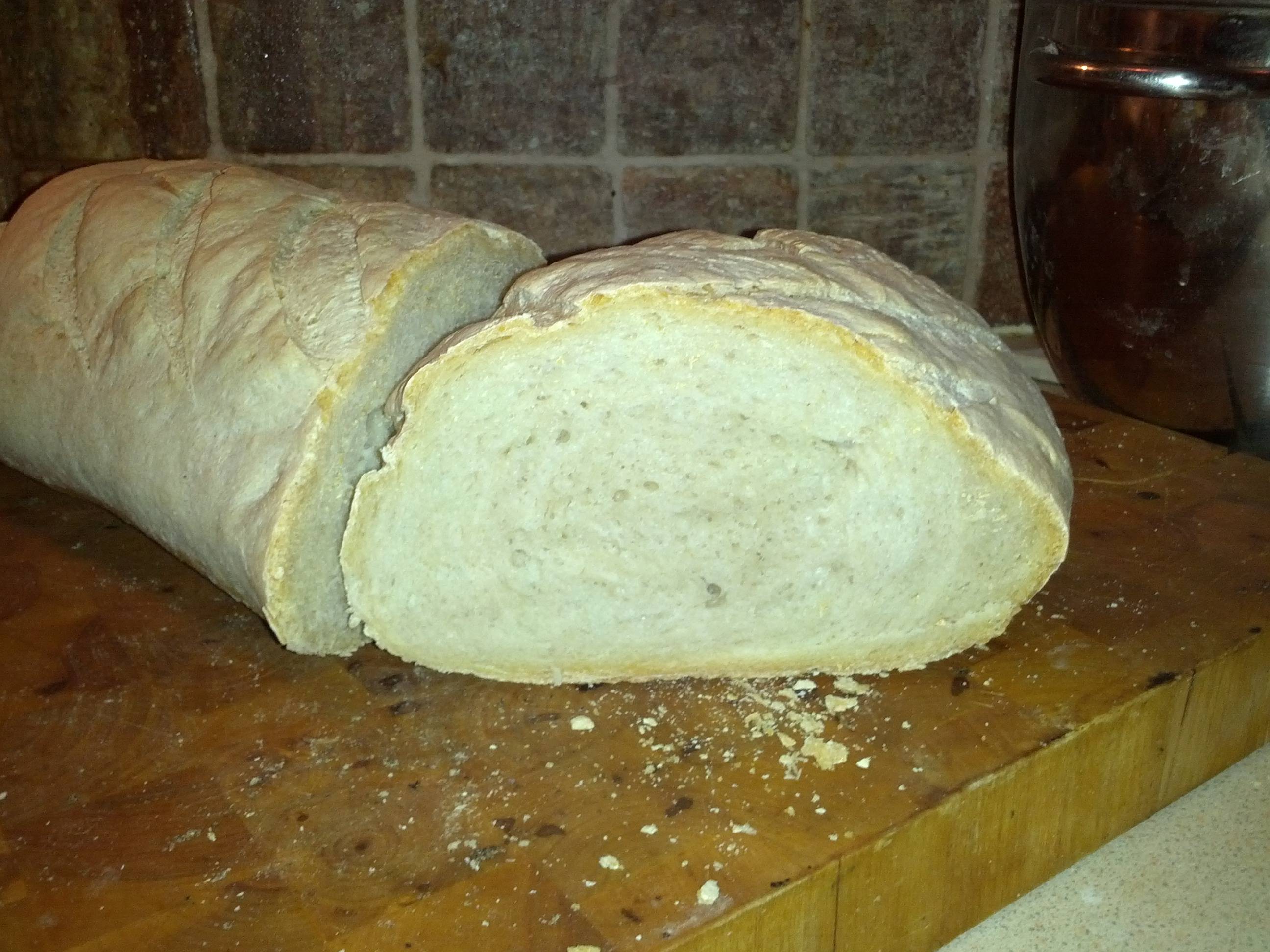When I'm baking regular white bread: wheat flour+water+yeast. I often find my first rise to do well, but my second rise halts prematurely. It does not double.
I think/guess the reason is mostly because of a drying out effect on the outer layer, impeding the rise. I don't think it is the yeast running out of steam; when I cut the loaves before the oven, the cuts makes a significant change in the rise.
Would the drying out effect be lessened if I added oil or butter to the mix?
If so, how does this effect the wetness of the dough?
This is the result of 2 hours for the first rise, 50 minutes for the second.

Update: Following the advice provided gave me a wonderfully light and smooth giant loaf of bread. I used oil and cling wrap instead of kitchen towels for both proofings.
